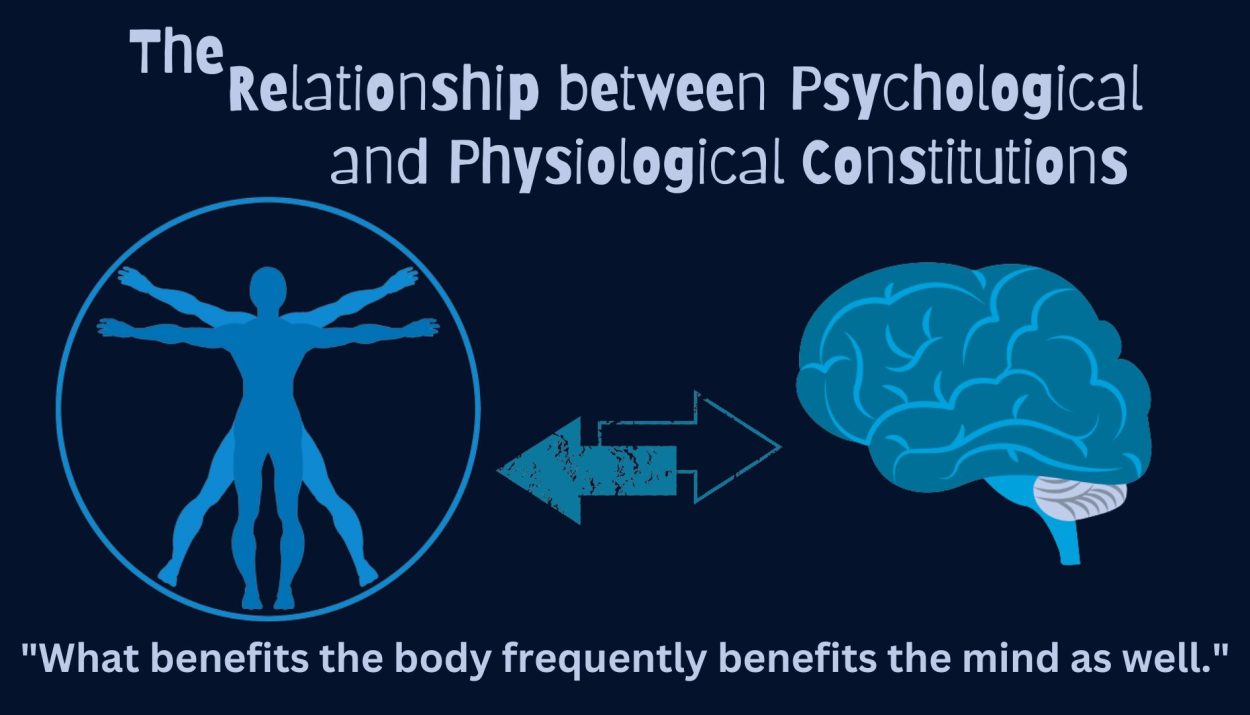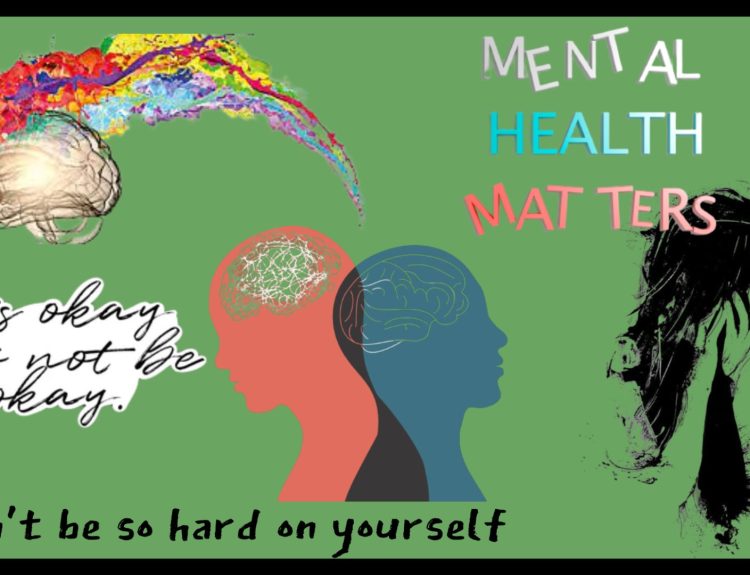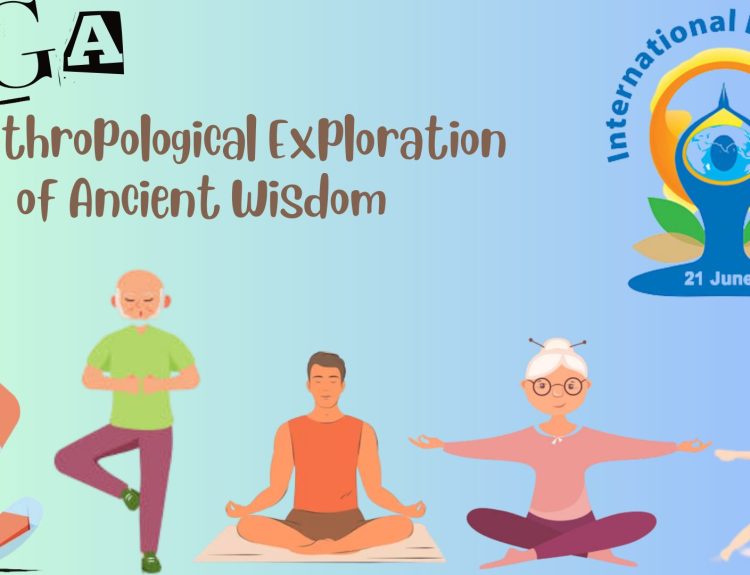The intricate relationship between psychological and physiological constitutions has been a subject of fascination and exploration for scientists, researchers, and healthcare professionals for decades. It is a connection that underscores the fundamental unity of the human body and mind. The relationship between psychological and physiological constitutions explores the complex interplay between our mental and physical states, uncovering the profound influence one exerts over the other.
An increasing body of research underscores the profound interconnection between mental and physical health, as evidenced by studies indicating that enhancements or deteriorations in one realm can trigger corresponding improvements or deteriorations in the other.
According to the Merriam-Webster Dictionary-
“Psychology is the study of mind and behaviour in relation to a particular field of knowledge or activity.”
“Physiology is a branch of biology that deals with the functions and activities of life or of living matter (such as organs, tissues, or cells) and of the physical and chemical phenomena involved.”
Understanding Psychological Constitution
Psychological constitution refers to an individual’s inherent mental makeup, encompassing traits, personality, emotions, and cognitive processes. It involves aspects such as temperament, resilience, and how we perceive and react to stressors in our environment. This constitution is shaped by both genetic predispositions and life experiences, including upbringing, trauma, and cultural influences.
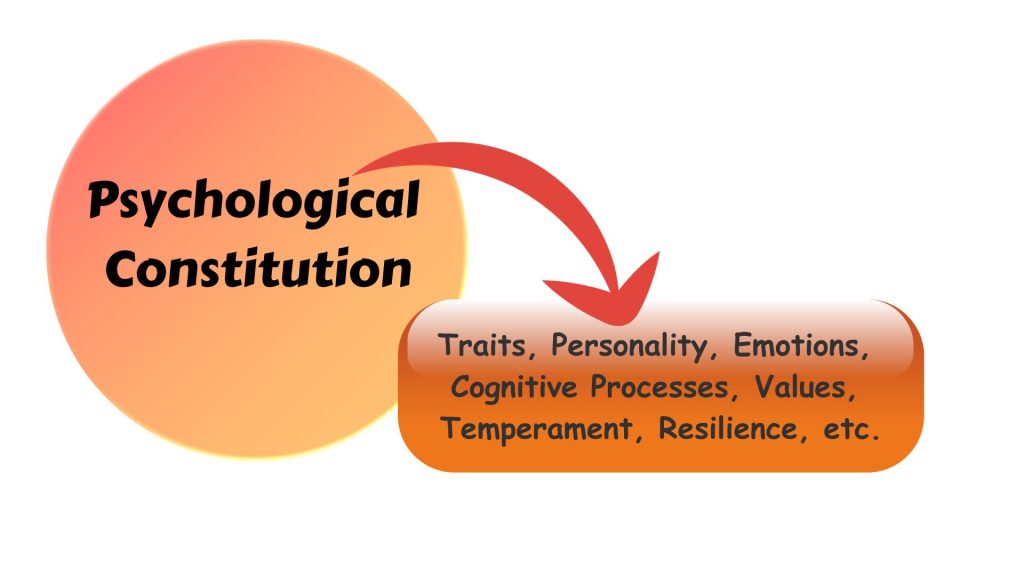
Read- Introduction to Psychological Anthropology
The Mind-Body Connection
The mind-body connection is the core of the relationship between psychological and physiological constitutions. Our thoughts, emotions, and mental state can have a tangible impact on our physical health. When we experience stress, anxiety, or depression, the body reacts through the release of stress hormones like cortisol and adrenaline, which can lead to physiological changes such as increased heart rate, blood pressure, and even compromised immune function.
Our bodies are intricately connected through the neurological system. Any influence on this system impacts how our brains perceive the external world, ultimately altering our body’s responses to it. A straightforward way to grasp this concept is to consider that when you’re in a state of stress or high anxiety, your blood pressure rises. This physical change is a reflection of what’s happening on the mental side of your body.
Conversely, our physical well-being can significantly influence our mental state. Chronic illnesses, pain, or physical trauma can lead to mental health issues like depression or anxiety. It’s a two-way street where the health of one aspect directly affects the other.
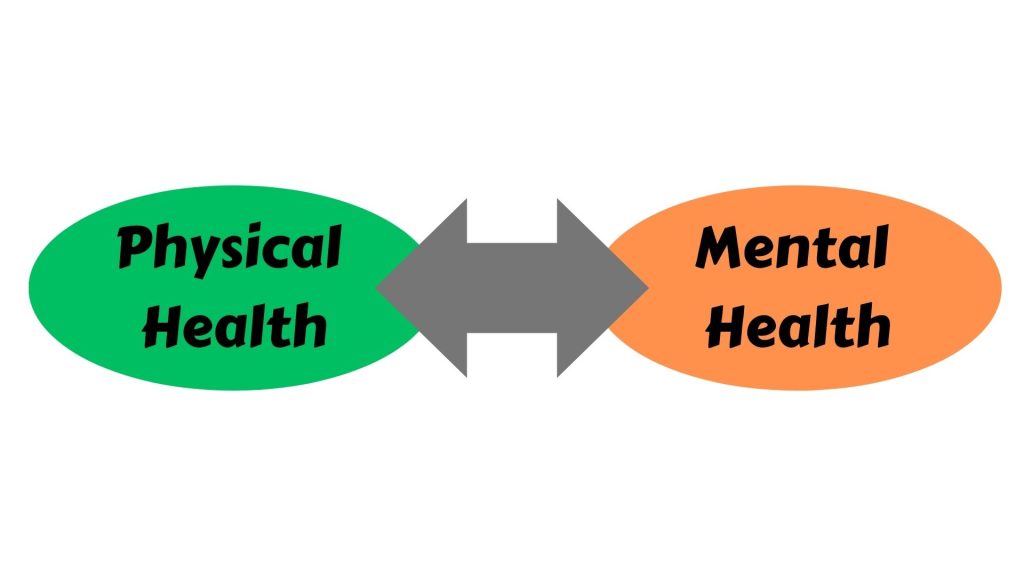
Psychosomatic disorders are perhaps the most striking examples of the interplay between psychological and physiological constitutions. These conditions manifest with physical symptoms that have no apparent medical cause but are rooted in emotional or psychological distress. Classic examples include tension headaches, irritable bowel syndrome, and fibromyalgia. Treating these disorders often requires addressing the underlying psychological factors.
Menstruation serves as an illustrative example of how the psychological and physiological constitutions of a woman are intertwined. Hormonal fluctuations trigger psychological responses, and psychological factors, such as stress and mood, can, in turn, influence the experience of physical symptoms. A woman with a heightened sensitivity to stress may find that her psychological state worsens the physical symptoms of menstruation, such as exacerbating cramps or headaches. Conversely, a woman with effective stress management techniques may experience milder psychological and physical symptoms during her period.
Hormones and Neurotransmitters
One of the most significant links between psychological and physiological constitutions lies in the intricate dance of hormones and neurotransmitters. These chemical messengers play a pivotal role in both our mental and physical health. For instance, serotonin, a neurotransmitter, not only regulates mood but also plays a role in gastrointestinal function. Imbalances in neurotransmitters can lead to conditions like depression and irritable bowel syndrome.
Similarly, cortisol, the stress hormone, affects not only our mood but also our immune system, metabolism, and sleep patterns. Chronic stress, often driven by psychological factors, can result in long-term physiological consequences, including cardiovascular disease and digestive problems.
Additionally, the body communicates through a neuroendocrine pathway, using various hormones to instruct your physical body on how to react based on your mental health state. This connection plays a significant role in scenarios involving chronic stress, anxiety, or depression, as it can lead to issues like weight gain, joint pain, and reduced motivation. These may initially seem like physical health concerns but are closely tied to your mental well-being.
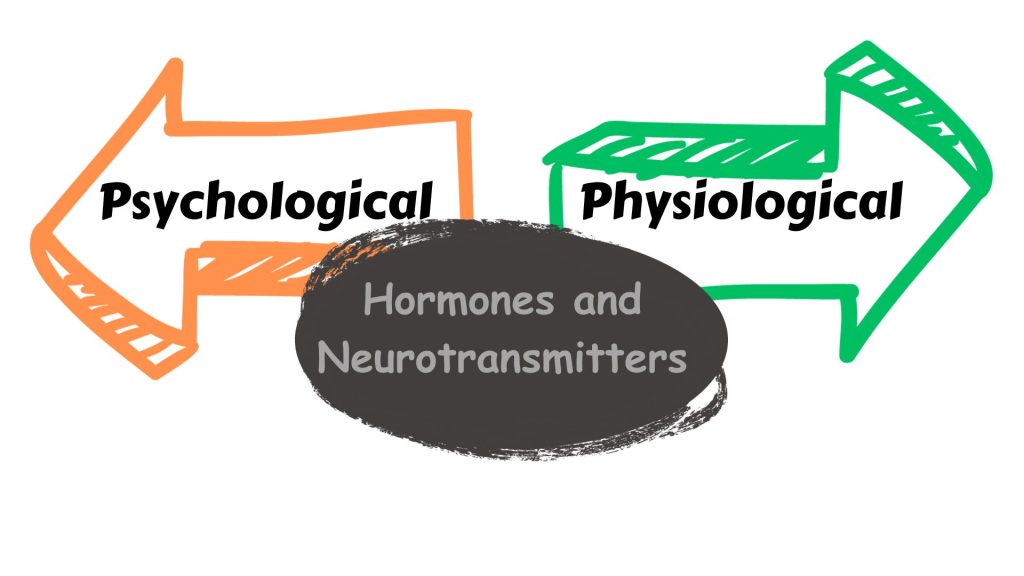
The Role of Genetics
Genetics also plays a role in the relationship between psychological and physiological constitutions. Certain genetic predispositions can make individuals more susceptible to both mental health conditions and physical ailments. Understanding these genetic factors can help tailor treatments and interventions for better outcomes.
Example: Depression and Serotonin Transporter Gene
The serotonin transporter gene (SLC6A4) is a well-studied genetic factor that plays a role in the regulation of serotonin, a neurotransmitter associated with mood and emotions. Variations in this gene can influence an individual’s susceptibility to depression, a common mental health condition.
Genetic Variation A: Some individuals may carry a genetic variation that results in a short allele of the serotonin transporter gene (known as the “short-short” genotype). Research has shown that individuals with this genotype tend to have a less efficient reuptake of serotonin, leading to lower serotonin levels in the brain. This genetic variation has been associated with a higher risk of developing depression.
Genetic Variation B: In contrast, others may carry a genetic variation that results in a long allele (known as the “long-long” genotype) of the serotonin transporter gene. This genotype is associated with a more efficient reuptake of serotonin and higher serotonin levels in the brain. Individuals with this genotype may have a lower genetic predisposition to depression.
In this example, the genetics of the serotonin transporter gene influence both the physiological (serotonin regulation) and psychological (depression susceptibility) aspects of an individual’s constitution. It highlights how genetic variations can contribute to differences in psychological and physiological responses, ultimately shaping an individual’s mental health and well-being.
Way forward
The connection between psychological and physiological constitutions is a profound reminder of the holistic nature of human health. It emphasizes that addressing one aspect without considering the other may yield incomplete solutions. Nurturing both aspects contributes to a healthier, more balanced life, highlighting the significance of a holistic approach to health and well-being. Healthcare should take into account this intricate relationship to provide comprehensive care for individuals.
Do regular exercise, eat a healthy and balanced diet, get a good night’s sleep, go outside and, of course, prioritize moments of doing nothing. Dedicate a few minutes daily to sit quietly without the influence of television, phones, or other diversions. During this time, simply exist in the present moment. Be attuned to your surroundings and your current emotional state. That’s all it takes. It empowers you to foster a deeper connection with yourself, promoting emotional and mental well-being alongside your physical health.
Be a part of your own healing process. “You are enough.”
References
Physical health and mental health
The Connection Between Mental Health and Physical Health


